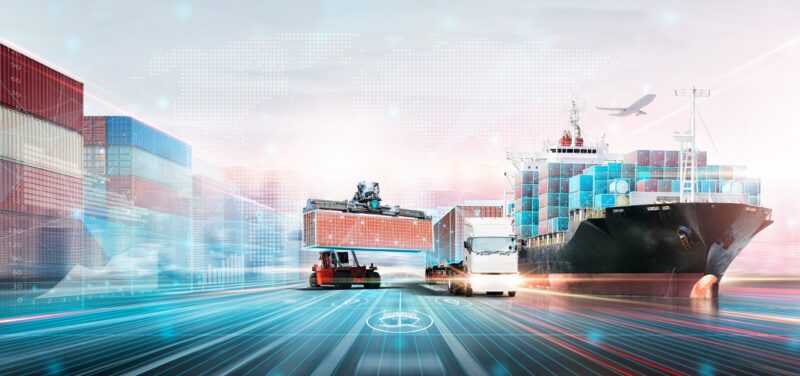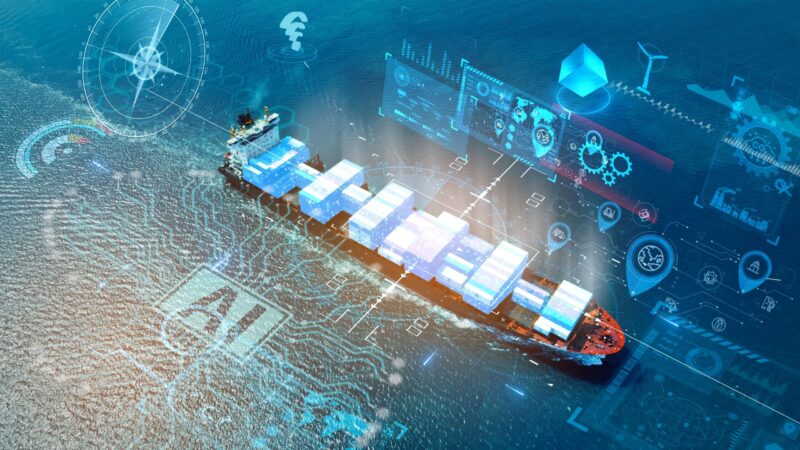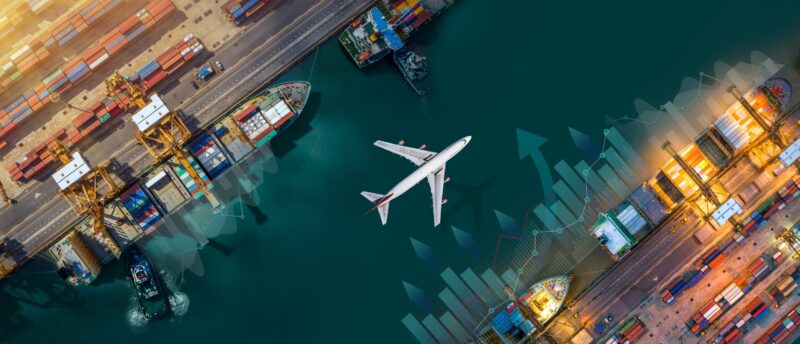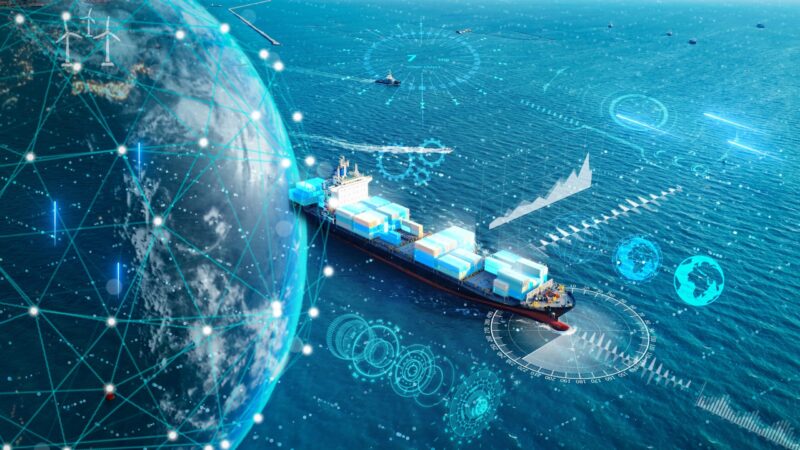
This site
is mobile
responsive

Maritime trade is crucial for Malaysia’s economy, with approximately 98 percent of the country’s trade transported by sea. Strategically located along key shipping routes, the ports in Malaysia are integral to its economic framework, facilitating trade and boosting logistics capabilities. In recent years, the country has made significant strides in improving its logistics performance. In the World Bank’s Logistics Performance Index (LPI) 2023, Malaysia ranked 26th globally, up from the previous ranking which was 41st in 2022. This leap has positioned Malaysia as the second-best performing ASEAN country after Singapore, a reflection of its growing stature in global trade logistics.
The LPI ranks 139 countries based on six (6) core components of logistics performance: customs efficiency, infrastructure quality, ease of arranging shipments, competence and quality of logistics services, tracking and tracing, and timeliness of shipments. Malaysia’s rise in the LPI highlights the country’s focus on enhancing these key components, driven by improvements in its port infrastructure and the digital transformation of its logistics operations.
Additionally, Malaysia’s strategic location makes it a prime access point for MNCs like IKEA, Intel and Samsung to manage their global supply chains. IKEA uses Malaysia as a logistics hub to distribute its flat-pack furniture products across Southeast Asia, benefiting from the country’s well-developed port facilities and logistics infrastructure. Meanwhile, Intel relies on Malaysia’s strong infrastructure to support its manufacturing and distribution of semiconductor components and products. On the other hand, Samsung leverages Malaysia’s logistics network for the distribution of its electronic products throughout Southeast Asia.
A global leader in shipping services, A.P. Moller–Maersk has signed a Memorandum of Understanding (MOU) with MIDA to drive high-quality investments into Malaysia as their regional logistics hub in ASEAN.1
Overall, Malaysia’s combination of strategic location, infrastructure, and favourable business environment makes it an attractive logistics hub for these multinational companies.
A key driver behind Malaysia’s improved logistics performance is Port Klang, the country’s largest port. According to the World Shipping Council, Port Klang ranked 12th globally in terms of container throughput in 2023, a testament to its pivotal role as a hub for maritime trade. Port Klang consists of three major ports: South Port, North Port, and West Port, all of which are managed by the Port Klang Authority (PKA).

In 2022, Port Klang handled 30.3 million freight weight tonnes of conventional cargo, marking a 13 percent increase from the 26.8 million tonnes recorded in 2021. This growth in cargo volume underscores the port’s role in driving Malaysia’s trade and logistics activities. To accommodate this increasing volume and to prepare for future growth, West Port is undergoing a major expansion plan that will see the construction of an additional 4.8 km wharf. This expansion will double the port’s capacity from the current 14 million twenty-foot equivalent units (TEUs) to nearly 28 million TEUs, ensuring that Port Klang remains competitive on the global stage.2
This expansion aligns with the goals set out in the Twelfth Malaysia Plan (2021-2025) or 12MP, which prioritises the development of transport and logistics infrastructure, including ports. The 12MP recognises that efficient and modern port infrastructure is crucial to Malaysia’s ambition of becoming a leading maritime hub in Southeast Asia. To achieve this, the Malaysian Government is committed to enhancing port capacities, modernising operations, and improving connectivity with key trade partners.
As the world continues to embrace digital transformation, Malaysia’s ports are also following suit. Digitalisation is seen as a key enabler of efficiency, accountability, and sustainability in port operations. One of the most significant digital advancements in Malaysian ports is the Remote Physical Check System (RPS), an in-house initiative developed by Port Klang. The RPS uses video analytic cameras installed on quay cranes at the wharf to verify every container being loaded or unloaded from vessels. This system not only reduces the need for manual inspections but also enhances accuracy, accountability, and the speed of operations.
Beyond the RPS, Port Klang is exploring other digital tools such as blockchain technology for improved tracking and tracing of shipments, automated port management systems to optimise resource allocation, and artificial intelligence to predict and manage cargo flow. These digital innovations are designed to ensure that Malaysian ports remain at the forefront of global logistics, while also contributing to broader environmental, social, and governance (ESG) goals by reducing emissions, improving energy efficiency, and minimising operational waste.
Port Klang is not alone in its digital transformation journey. The Port of Tanjung Pelepas (PTP), another of Malaysia’s major ports, has also embarked on a digital makeover. By adopting advanced technologies such as big data analytics, Internet of Things (IoT), and machine learning, PTP aims to optimise its operations, reduce costs, and improve service reliability. These initiatives are part of Malaysia’s broader effort to embrace Industry 4.0, ensuring that its ports are equipped to meet the demands of an increasingly complex and competitive global logistics landscape.

Digitalisation and port expansion efforts are not only focused on large ports; small and medium enterprises (SMEs) and mid-tier companies (MTCs) within the logistics sector are also encouraged to adopt new technologies and upgrade their capabilities. MIDA offers a range of financial and tax incentives to support local businesses in this transition. These incentives are aligned with Malaysia’s commitment to fostering innovation, automation, and digitalisation across all sectors of the economy. MIDA also supports businesses that invest in digitalisation by offering incentives like Automation Capital Allowances (Automation CA). This helps logistics companies to integrate advanced technologies into their operations such as cloud computing, Automated warehousing systems, Robotics for sorting and handling, Advanced inventory management systems and Automated order processing systems.
One such incentive is the Domestic Investment Accelerator Fund (DIAF) – ESG Adoption, which was introduced to help SMEs and MTCs transition into ESG practices. This fund supports businesses in adopting sustainable practices that align with global ESG standards, thereby enhancing their competitiveness in international markets. Additionally, MIDA offers Integrated Logistics Services (ILS) incentives and International Integrated Logistics Services (IILS) Status to companies that provide integrated and seamless logistics services along the supply chain. These incentives are designed to encourage Malaysian companies to expand their scope of operations and compete on a regional or global scale. As of 2023, MIDA has recorded a total investment of RM2.6 billion for Logistics Services with 123 projects approved and 848 total job opportunities.

Malaysia’s significant progress in the LPI and the global rankings of its ports reflects the country’s dedication to becoming a leading maritime and logistics hub. The expansion of Port Klang and the digital transformation of its operations, coupled with government support for SMEs and MTCs, illustrate a comprehensive and robust framework for growth and innovation in the logistics sector.
In this evolving landscape, companies operating within Malaysia’s logistics sector must prioritise sustainability as part of their business strategies. As global trade increasingly values environmental responsibility, businesses that adopt green practices will have a competitive advantage. Embracing green logistics—through energy-efficient technologies, waste reduction, and the adoption of renewable energy sources—can help companies reduce their carbon footprint and align with Malaysia’s net-zero emissions goals. The Malaysian Government actively promotes various RE initiatives such as the Feed-in Tariff (FiT), New Enhanced Dispatched Arrangement (NEDA), Large Scale Solar (LSS), Green Electricity Tariff (GET), Net Energy Metering (NEM), Self-Consumption (SelCo) and Corporate Green Power Programme (CGPP). The Government will also introduce the Corporate Renewable Energy Supply Scheme (CRESS) starting in September 2024 to enhance corporate access to green electricity. Through the open grid access concept, third parties (Third Party Access-TPA) will be allowed to supply (sell) or procure (buy) electricity through the national grid system with a set system access fee.
Looking ahead, Malaysia is poised to continue its rise as a major player in global maritime logistics. By continuing to invest in port infrastructure, embrace digitalisation, and support local businesses through facilitation and incentives, Malaysia can enhance its competitive edge and secure its place as a vital player in international trade.
With ongoing efforts to improve logistics efficiency, infrastructure quality, and sustainability, Malaysia is well-positioned to become a global top-tier logistics hub, contributing significantly to the global maritime economy. The development of Malaysia’s ports and the emphasis on digitalisation underscore the country’s ambition to strengthen its logistics sector. Through government support, strategic planning, and a focus on innovation, Malaysia is on track to achieve its goal of becoming a premier maritime hub in the region, ensuring continued economic growth and competitiveness in the years to come.
